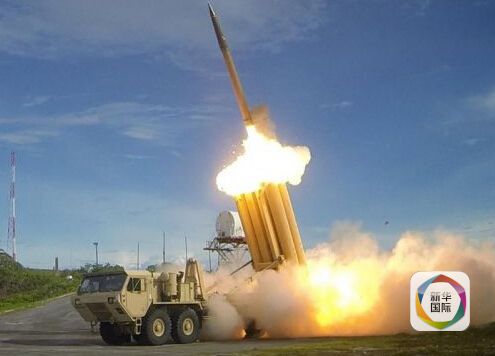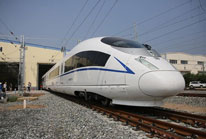


Dissenting voices have been on the rise since Seoul and Washington announced their decision to deploy the Terminal High Altitude Area Defense (THAAD) system. Amid protests from the South Korean public, some South Korean media outlets worried about possible “revenge” from China, while others tried to label China as a bully. But analysts pointed out that it is unquestionably South Korea that incited this storm, and South Korea will also be the one to pay a long-term and expensive price if it does not give up the plan.
On Aug. 14, more than 10,000 South Korean citizens gathered at Seoul Plaza to stage a protest against the deployment of the THAAD system. Protesters believe that the deployment will lead to a new arms race and a severely damaged South Korean economy.
Compared with the protesters, local media seems more concerned about China's possible counteractions, though a number of local media outlets have also speculated about the possible impact of THAAD on South Korea’s economy. According to the major South Korean newspaper Kukmin Ilbo, the number of Chinese tourists visiting South Korea has decreased by 3.7 percent in August. Analysts believe that South Korea's decision to deploy the THAAD system plays a role in this drop.
The newspaper also said that some Chinese-oriented vendors at tourist sites have complained about a decline in their sales. Tourist industry insiders predict that the number of the Chinese tourists is expected to drop further still.
From Aug. 16, all South Korean tourist agencies applying for group visas through the Chinese Visa Application Service Center are required to submit original passports. South Korean media has viewed this as an antagonistic move on China's part, since only copies of passports were required in the past. Chun Yungwoo, a senior adviser with the Asan Institute for Policy Studies, told Dong-A Ilbo that “China would definitely fail to intimidate [South Korea] through its retaliatory measures.”
However, these speculations by the South Korean media are simply meant to create an inaccurate image of China as a bully that picks on the weak, said Cui Zhiying, a researcher with the Center for Asia-Pacific studies at Tongji University.
The THAAD system, as a weapon that threatens China's security, definitely has the potential to damage China-South Korea relations. But the damage may not take the form of governmental sanctions. After all, the THAAD system will destabilize the region, and nobody wants to visit unstable places, Cui added.
The Taiwan newspaper Want Daily commented on Aug. 14 that China-South Korea relations are now facing a crisis. South Korean objectors believe that these broken relations are too high a price to pay for a defense system that does not even protect the capital. The deployment will also push the peaceful reunification of the Korean Peninsula out of reach, closing the door on reconciliation.
Many experts have advised South Korea to avoid taking sides between the U.S. and China. Yoon Young-kwan, the former foreign minister of South Korea, holds that the country is now relying on the U.S. and China for its security and economy respectively; therefore, it has to avoid a choice between the two countries.
Cui said that South Korea and the U.S. should be aware that the THAAD system would trigger an arms race as well as a confrontation in northeast Asia. However, there is better path forward. Both the U.S. and South Korea will soon elect new presidents, and these new governments may have a different attitude toward the issue. However, if the deployment moves forward, China will be forced to stage a confrontation.
The U.S. website Daily NK said in an article that China-South Korea relations are experiencing more than a rough patch. The THAAD issue is not likely to disappear any time soon, so the honeymoon between the two countries is over, said the article, adding that it’s time for both governments to re-examine each other from the perspective of realpolitik.
 World's fastest bullet train to start operating next month
World's fastest bullet train to start operating next month Huangluo: China's 'long hair village'
Huangluo: China's 'long hair village' Spectacular bridge with one of the tallest piers in the world
Spectacular bridge with one of the tallest piers in the world Magnificent view of Hukou Waterfall
Magnificent view of Hukou Waterfall A glimpse of Stride 2016 Zhurihe B military drill
A glimpse of Stride 2016 Zhurihe B military drill US Navy chief tours Liaoning aircraft carrier
US Navy chief tours Liaoning aircraft carrier Chinese American woman wins Miss Michigan
Chinese American woman wins Miss Michigan Centenarian couple takes first wedding photos
Centenarian couple takes first wedding photos Traditional Tibetan costumes presented during fashion show
Traditional Tibetan costumes presented during fashion show Top 10 livable Chinese cities
Top 10 livable Chinese cities Top 20 hottest women in the world in 2014
Top 20 hottest women in the world in 2014 Top 10 hardest languages to learn
Top 10 hardest languages to learn China’s Top 10 Unique Bridges, Highways and Roads
China’s Top 10 Unique Bridges, Highways and Roads Stop politicizing doping: observer
Stop politicizing doping: observer Weibo explodes over news of actor’s divorce
Weibo explodes over news of actor’s divorce Japanese teacher spends decades researching Nanjing Massacre
Japanese teacher spends decades researching Nanjing Massacre After 2 years of regulatory limbo, govt to legalize popular QR code payment services
After 2 years of regulatory limbo, govt to legalize popular QR code payment servicesDay|Week